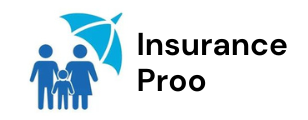Short term health insurance

Short-term health insurance is a type of health coverage designed to provide temporary protection of individuals who are in transition or need coverage for a limited period. This insurance is often sought by those who are in between Jobs, waiting for other health insurance to begin, or looking for a more affordable option for a brief Duration. Here’s an in-depth look at short- term insurance, its benefits, limitations ,and Considerations.
What is Short- Term Health Insurance?

Short-term health insurance, are known as/Called as temporary health insurance, which is designed to fill the blanks /gaps in coverage for a limited time period/ within a Time frame typically ranging from a few months to a year. Unlike traditional health insurance plans, which are often comprehensive and regulated under the affordable care act(ACA) , Short-term plans are more flexible and can be tailored to meet Immediate needs.
Key Features of Short-Health Insurance are as follows:-

Following are few important aspects to be kept in the mind which are as follows:-
- Limited Duration:– Short-term health insurance plans are intended for temporary use. They can last from 30 days upto 12 months ,depending on state Regulations and the specific plans .
- Lower Premiums:-These Plans generally have lower Premiums compared to traditional health insurance. This makes them an attractive option for individuals seeking affordable coverage.
- Flexible Enrollment:- Short-term plans often have fewer enrollments restrictions. Individuals can apply at anytime.l, making it easier to obtain coverage quickly.
- Basic Coverage:- While Short-term health insurance provides essential health benefits, it may not cover all services. Commonly covered include emergency care, hospitalization, and some outpatient services.
- Limited Benefits:– Many short term insurance plans have caps on coverage amounts and may exclude certain services, such as maternity care, mentality health services, and Preventive care. Benefits of Short-term health insurance are as follows:-
Following are the Pointers are to be Kept in the mind are as follows:-

- Quick Coverage:– Short-term plans can be activated quickly, often within a day or two ,making them ideal for individuals who need Immediate coverage.
- Cost Effective:– for those who are healthy and do not require extensive medical care ,Short-term term insurance can be more affordable option compared to traditional plans.
- Flexibility:- These plans allow individuals to choose the Duration of Coverage that bests fits their needs, providingf flexibility in manging health Insurance.
- No penalty for Gaps:- In many cases, individuals who opt for Short-term insurance can avoid Penalities associated with no having health coverage, Particularly if they are in transition between Jobs.
Limitations of Short-term Health Insurance:- These Pointers are to be in kept in mind are as follows:-
- Limited Coverage: ~ Short-term plans often do not cover pre-existing condition , preventive services, or essential health benefits mandated by the ACA .
- High out of Pocket Costs:- While Premiums may be lower, Short-term plans often comes with higher Deductibles and out of pocket maximums. Which can lead to significant expenses/Expensive if medical care’s is needed.
- Not-ACA -Complaint:– Short-term health insurance does not meet the ACA’s requirements for comprehensive coverage. This means individuals may not receive the same level of protection as they would with a traditional plan.
- Renewal Challenges:– Many Short term plans cannot be renewed once they expire,which can leave individually without coverage if still need it.
Who Should Consider Short-term Health Insurance?

Short-term Health Insurance can be a suitable option for various individuals, including,these are as follows:-
- Recent Graduation: Those who have recently graduated and are entering the workforce may need temporary coverage before securing a Job with health benefits/ healthcare services or Platform.
- Job Transitioners :– Individuals who are between jobs or waiting employer-Sponsored health insurance to begin can benefit from Short-term plans.
- Early Retirees :– Those who retire before becoming eligible for Medicare may seek Short-term coverage to bridge the gap.
- Healthy Individuals:- Individuals who are generally healthy and do not anticipate needing Extensive medical care may find Short-term plans to be a cost- effective solutions.
Things kept in mind before choosing Short-term health insurance:-

Some of these tick-marks are as follows:-
- Evaluate health needs:Consider your current health plans & Potential medical needs. If you have ongoing health issues or anticipate needing regular medical care, a comprehensive plan may be more appropriate.
- Understand Coverage Limits:– Carefully review the plan details, including what services are covered and any exclusions. Ensure that the plans meets your specific needs.
- Compare Plans:- Shop around and compare different Short-term health insurance plans. Look at premiums,deductibles, coverage limits ,and network providers to find the best fit
- Check State Regulations:– Short-term health insurance Regulations can vary state by state . Be sure to understand the rules and options Available in your area.
- Consider future coverage:– Think about your long term insurance needs. If you anticipate needing coverage beyond the Short-term plan, explore options for transitioning to a more comprehensive plan.
Final Conclusion
As per the above discussion, the Short-term health insurance can be a valuable solution/assets/requirements for individuals seeking temporary coverage during transitional periods. While it offers lower premiums and quick access to care , it is essential to understand its limitations and evaluate personal health needs before enrolling . By Carefully Considering the benefits and drawbacks ,individuals can make informed decisions( Opinions, Thoughts, etc etc) about their health insurance options and ensure they have the coverage they need during critical times / at emergency/ any panic mode.
Read more at : What’s the Difference between PPO and HMO health plans











